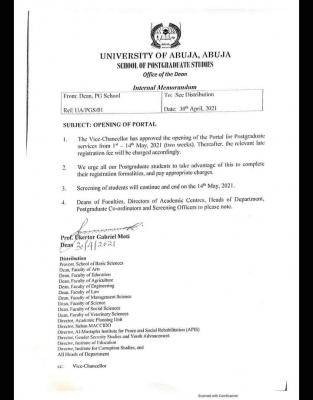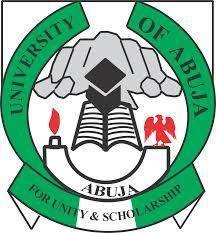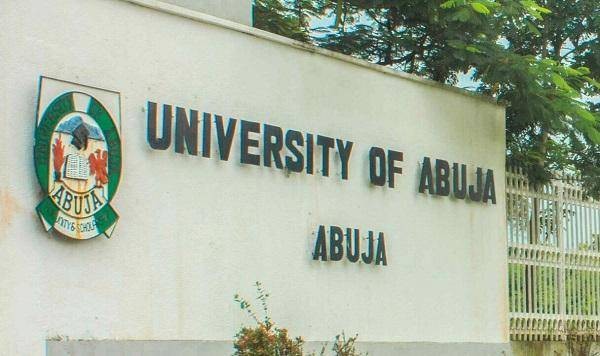
The University of Abuja was closed down last Tuesday week following students' protest. It would be the second time this year alone that the institution would be shut over the same cause.
The protests, mainly by affected students aggrieved for the continuing non-accreditation of their engineering courses, began on the main campus on Monday and quickly spread to the mini-campus in Gwagwalada, where other students, complaining of "poor learning conditions", also joined in. It continued the next day, with the students barricading major roads, including the Abuja-Lokoja road, causing traffic holdups before security personnel were called in to remove the barricades.
Earlier this year, the students staged similar demonstration to protest the non-accreditation of courses, including Engineering, Medicine and Veterinary Medicine, leading to the closure of the university on April 2, 2012.
The Minister of Education, Professor Ruqayyatu Rufa'i, at the time, convened a meeting between her office, the affected students and the university's vice chancellor, Professor James Sunday Adelabu, who pledged to provide all the requirement to get the affected programmes accredited within six months.
At a press briefing later, Adelabu said he had received money from the Federal Ministry of Education for the accreditation exercise of the affected courses. At the end of six months, however, only medicine and veterinary medicine were inspected by relevant bodies as part of accreditation requirements, leaving out engineering.
Engineering students called attention to this apparent neglect by locking up their lecturers in the faculty building. The authorities apparently did not that action as signal to address the issue.
It is scandalous that the university, located in the nation's capital, is yet to accomplish the mission of its founding fathers, 24 years after its creation. The deplorable state to which it has sunk speaks both to the maladministration of the institution and the lack of effective oversight by the Ministry of Education and its agencies, particularly the NUC.
There have been reports of gross inadequacy of staff, lecture halls/ theatres, learning resources, hostel accommodation, and library and laboratory equipment, which the government appears not to have addressed. The government's inability-or unwillingness, to act on reports of decay in the university is worrisome. A 2011 White Paper of routine visitation panels to all federal universities in the country, which cited incompetence and flagrant abuse of due process on the part of the top leadership, has not been implemented.
In response to a threat by the university's chapter of Academic Staff Union of Universities (ASUU) to go on strike if an investigation panel was not instituted to probe Professor Adelabu's conduct, the federal government last July inaugurated a special visitation panel to audit academic programmes, staff and students, look into project administration and procurement; investigate admissions and examinations administration; and make appropriate recommendations to government. In receiving the report, the Minister of Education promised that a White Paper on the report would be released within two weeks. That pledge remains unfulfilled.
The rot has gone too long that a drastic action, short of closing the university until for at least six months, needs to be promptly taken to avert further deterioration. The university's governing council should be dissolved and the vice chancellor step aside to allow for a proper audit in order to reposition the university to play its intended role in society. President Jonathan, as Visitor to the university, should order the immediate release of the White Paper on the special visitation panel and implement its recommendations.
Any new vice chancellor that the government may appoint should advisedly come from outside the University of Abuja, and be given the task of revalidating the lecturers, auditing students' population, appraising academic programmes and ensuring that they get accredited. Students, whose programmes cannot, perhaps for practical reasons, be immediately accredited, may be transferred to other universities where such courses exist so that no one suffers from the incompetence or negligence of the university's authorities.
The University of Abuja should be a model to universities anywhere in the world. The task of realising that goal should start immediately with the Visitor acting on the visitation panel's report now before the Minister of Education.


